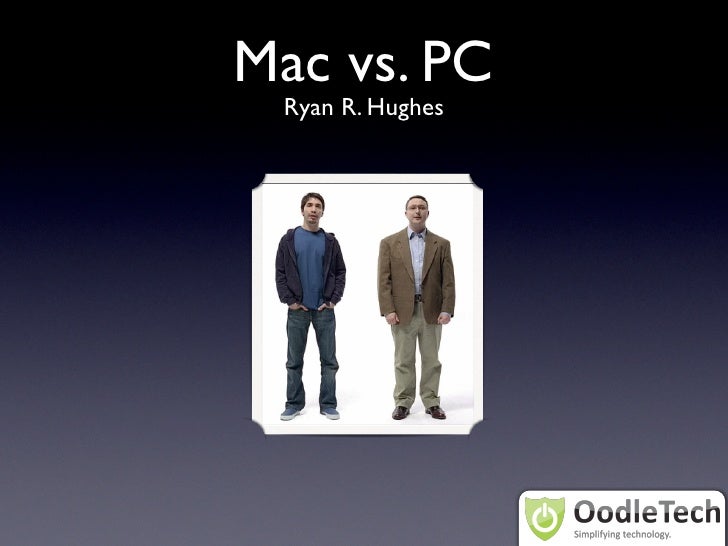

- Mac versus pc for business update#
- Mac versus pc for business pro#
- Mac versus pc for business mac#
- Mac versus pc for business windows#
The 2021 lineup features M1 in MacBook Air and 13-inch MacBook Pro models. Designed by Apple, this unit is a super fast CPU core and is expected to offer notable gains in energy efficiency.

Besides, Apple has finally shifted away from its buggy butterfly keyboards, so the whole lineup has moved to the new redesigned scissor mechanism: Magic Keyboard.Īnd, of course, this year, Apple’s lineup has several models with the much-talked about Apple M1 chip.

Arguably, the first half of 2021 looks like the golden age of MacBook selection - there are just three options, each with distinct use cases and a different price point. So here’s a quick recap of what can be purchased in Apple Store right now.
Mac versus pc for business update#
But the same update cycle also makes it difficult to track what’s currently available and what are the main differences between every product. Whether it’s an iPad Pro or MacBook Air, you can be sure that the new model is always more powerful, more lightweight, more energy-efficient, and in some cases even cheaper. What Are iPad vs MacBook Models Today?Įvery year, Apple releases new devices. Are you not 100% sure about all the latest iPad Pro vs MacBook Pro differences? This guide is for you. the iPad today comes in no less than five variations, and its high-end models even beat some MacBooks in terms of computing power.Īll this makes the question of whether to choose an iPad or MacBook more relevant than ever. When the first iPad was launched, it was quickly dismissed by many as a playful, auxiliary device that could only be good for reading or looking at pictures. Even serious gaming was only reserved for the most powerful MacBook machines. We've been using Macs to write papers, send emails, create apps, and so much more. It used to be that MacBooks were the only devices designed for us to produce something new.
Mac versus pc for business mac#
Please follow me on Twitter, or join me in the AppleHolic’s bar & grill and Apple Discussions groups on MeWe.Replace Mac defaults and discover new gems in one suite. With WWDC looming, it will be interesting to see to what extent Apple’s plans embrace its hard won position in the enterprise markets, and to what extent its plans move the envelope (for or against) in the space. This tallies with recent Changewave data that showed Apple as a top three vendor in the enterprise space, which is a position that would have been unthinkable not long ago. “Because the respondents are IT professionals, many hold positions that allow them to observe these trends from an authoritative vantage point (for example, system administrators, IT managers and helpdesk staff),” it explains. The survey explains that around half the IT professionals spoken to believe Mac market share is climbing: Either way, we must wait and see if this flips the needle of enterprise market share – that the needle is flipping should not be in doubt. It is possible that a move to its own processors may enable Apple to offer Macs at lower prices, but that's unlikely given the company usually pushes the value envelope in preference to price.
Mac versus pc for business windows#
Of course, IBM first began challenging the "Macs are more expensive" trope back in 2016 when it explained how it saves more than $500 when employees choose a Mac rather than a Windows PC for work. The cost of ownership of Macs against PCs remains a stubborn myth that impedes Apple’s growth in the enterprise space. While IBM has gone on the record to state that on a per-device basis, Macs work out much cheaper to run than PCs in the long run, that initial sales cost still gives enterprise IT purchasers pause for thought. That last element will hopefully raise some alarm bells within Apple, given that we now expect to be told of the company’s plans to migrate Macs to its own self-developed ARM-based A-series processors: Will these run Windows? Will these new breed of Macs be compatible with the sometimes enterprise-unique applications the company’s growing business market needs? However, the main reason not to use a Mac at this time seem to be “concerns around application compatibility." When they must, many (42.2%) SMBs use client-based virtualization tools to run Windows on the Mac (which, of course, Parallels makes).


 0 kommentar(er)
0 kommentar(er)
